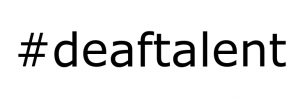 Too often, young people who are deaf are discouraged from following their dreams. They are told “you can’t…” or “you won’t be able to…” and they are pushed to into careers that they are not passionate about. In reality, however, there are very few jobs Deaf people “can’t” do, especially once small adjustments are made to accommodate their specific skills and abilities. At the end of the day, our society limits people more than the actual experience of deafness ever could.
Too often, young people who are deaf are discouraged from following their dreams. They are told “you can’t…” or “you won’t be able to…” and they are pushed to into careers that they are not passionate about. In reality, however, there are very few jobs Deaf people “can’t” do, especially once small adjustments are made to accommodate their specific skills and abilities. At the end of the day, our society limits people more than the actual experience of deafness ever could.
#DeafTalent is a cultural movement that is gaining traction in all areas of life. Talented Deaf individuals in fields across the board are working to defy social expectations, remove barriers, and prove that there are NO limits to what people who are deaf can do. My Deaf siblings and young nieces deserve every opportunity to manifest their own destiny and accomplish their own goals without suffering the prejudice of previous generations. It’s time for people to open their minds to the endless potential of our diverse population.
To explore the many facets of DeafTalent, I went right to the source: the Deaf community. Individuals working in a number of different fields were eager to communicate a message of Deaf empowerment. This is part IV of an ongoing series about Deaf Talent in America; be sure to check out part I, part II, and part III, and follow along for future installments!
Sean Forbes
Music artist + Co-founder D-PAN
deafandloud.com
Inspirations:
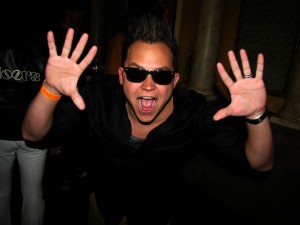 I grew up watching MTV with my brothers, listening to songs my parents and brothers played – which they included me by lip-synching songs so I could read their lips, witnessing the enjoyment of live music from watching my Dad and Uncle perform in their country-rock band The Forbes Brothers.
I grew up watching MTV with my brothers, listening to songs my parents and brothers played – which they included me by lip-synching songs so I could read their lips, witnessing the enjoyment of live music from watching my Dad and Uncle perform in their country-rock band The Forbes Brothers.
We had a music room in the basement where I spent the better part of my childhood banging on drums I’ve had since I was 5 years old, learning to play guitar, writing countless songs that I would be embarrassed to show today. Music is the one and only thing I ever wanted, but the only thing that “stood in the way” were those who thought otherwise…. but I never cared about them, they weren’t a part of my life.
Barriers:
My parents always told me I could do whatever I wanted. I don’t think in a million years they thought I would actually try and pursue music for a career. I knew first hand that it was a difficult path to chose and that many musicians don’t make a living playing music, but I was determined to make it more than just a hobby. The biggest barrier was proving those in the music industry I could do this. It was my determination, persistence, and I-don’t-give-a-f*ck attitude that paid off because everyone could see I was inclined to make this work, and would not take no for an answer.
I’m also fortunate that I had the ability to co-found D-PAN, the Deaf Professional Arts Network, a nonprofit that makes mainstream music accessible to the deaf community, and with my own music, that’s what I always wanted, to write and perform my own songs… I never cared much for marching to the same beat everyone else was doing and jumping on other wagons, I wanted to create a wagon other people could jump on, or that could inspire people to create their own wagons other people could jump on.
I work with closely with Mark Levin and Adrean Mangiardi, who are both deaf, and who are what I like to call “Jack-Of-All-Trades” when it comes to music, music videos, production, the three of us have been working closely for almost 8 years and have been through it all together from working at D-PAN, creating the Sean Forbes / Deaf And Loud world, touring across the country together creating memories, and of course going to a bar or two and causing a ruckus, just Google “deaf wolfpack.”
Deaf Advantages:
Most bands start out by playing in their local markets and build a fanbase locally then spreading out from there. Being deaf and a graduate of RIT/NTID certainly had its advantages, along with my frequent visits to Gallaudet where I made many friends, and immersed myself into Deaf culture. When I perform in cities across the country, I meet up with the friends I made throughout the years and once in awhile the whole band and I will crash on their couches and floors! When the band and I show up at bars to play people are always tell us “We’re so used to seeing the same old bass, guitar, drums, and a singer night after night but when you show up, you rap and sign your songs at the same time, it looks like your dancing with your hands and doing something meaningful, then you have visuals behind you with the lyrics being shown making it a one of a kind 100% accessible show” Music industry people are always like “You’re DEAF and you do MUSIC?! WOW!” and then when they see the whole presentation it never fails that their response is “I HAVE NEVER SEEN ANYTHING LIKE THAT” that is exactly what I wanted to do. I hate it when deaf people try to be like the next Wiz Khalifa, or the next whatever already exists… BE YOURSELF, you’ll get more respect that way.
I’m proud to be deaf, I think that no matter what race, disability, or nationality, whatever you are… if you are comfortable in your own skin people will connect.
Also – It’s a great time to be a deaf person, we have so much more accessibility to entertainment than we ever have before, we have deaf people being showcased on a mainstreamed level – Nyle Dimarco is making his mark on America’s Next Top Model a hugely popular television show on CW, we have Switched At Birth on ABC Family that has been going on 4+ seasons with a huge fanbase that is in love with Sean Berdy, and we have Deaf West Theatre with their revival of Spring Awakening making huge waves on Broadway which will knock open huge doors for Daniel Durant, Sandra Mae Frank, Josh Castille, Treshelle Edmond, Amelia Hensley, Russell Harvard, Anthony Natele, Miles Barbee, and to have Marlee Matlin as the den mother of sorts is a great group, I’ve seen the show twice and hung out with the cast after and I’m truly proud of their hard work. It is truly important that as a community we support one another —- so huge shout outs to all of the #deaftalent showing the world what we as a community can do and I’m excited for many more doors to open for many of us. I want to see Tate Tullier taking pictures for GQ or even taking pictures of me for Rolling Stone, Jules Dameron and Adrean Mangiardi directing a network or cable show, Shoshannah Stern and Amber Zion playing a role on network television show, Wawa getting signed to a record label by a big record company… it’s time for all of this.
Advice:
Do what you LOVE. When kids come up to me and my shows ask me “How can I be famous like you?” I always tell them “Why do you want to be famous?” and they can never answer that. I didn’t go into music because I wanted to be famous, I went into music because I LOVE MUSIC. You should do things because you love doing them. I couldn’t imagine a life without music, and if that’s what you want to do, or whatever you want to do my advice is to Immerse yourself, believe in yourself, work hard, be persistent because the only person who can make this happen is YOURSELF.
Kristen Marie “Rajarajeshwari” Weiner
Creator of Deafhood Yoga
http://deafhoodyoga.com/
Inspirations:
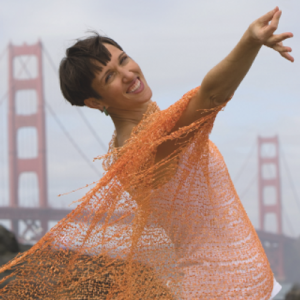 Born Kristen Marie Weiner, I am now known as Rajarajeshwari, my spiritually inspiring name. The vision of Deafhood Yoga® was channeled in 2008, after experiencing the depth of Dr. Paddy Ladd’s book “Understanding Deaf Culture, in Search of Deafhood”. In that class, the intense dialogue with other members of the Deaf community led to a powerful moment of understanding what the concept of colonization truly meant. I had the opportunity to learn and study Deafhood in the Deaf, collective community for two semesters.
Born Kristen Marie Weiner, I am now known as Rajarajeshwari, my spiritually inspiring name. The vision of Deafhood Yoga® was channeled in 2008, after experiencing the depth of Dr. Paddy Ladd’s book “Understanding Deaf Culture, in Search of Deafhood”. In that class, the intense dialogue with other members of the Deaf community led to a powerful moment of understanding what the concept of colonization truly meant. I had the opportunity to learn and study Deafhood in the Deaf, collective community for two semesters.
We analyzed, dialogued, identified, learned, processed and understood that the systems in our environment either oppressed or supported us as individuals, and as a cultural linguistics community. That ranges from activism, businesses, communication, education, the medical system, social economics, social justice, spirituality and more. To me, the word, Deafhood, means the consciousness of sharing a similar experience growing up as a Deaf person like childhood, sisterhood, motherhood, etc. We know what works and what does not work. It, also, is a personal journey that each Deaf person undertakes to discover their true identity and purpose here on Earth as a Deaf person. I went through the stages of colonization, decolonization and liberation. This inspired me to want the same for every Deaf person!
I, like any other member of a cultural-linguistic community, will do anything to protect, preserve and pass on our culture and language. The vibrant, rich language of sign & our culture is clearly deep-rooted in the mind, the blood, & the spirit of our Deaf people. I know our Deaf culture and sign language is a divine gift to the world.
Yoga means to unite our mind, body and soul with the higher power, i.e. God, Creator, Brahman, etc. Many people live outside their mind, body and soul. It is time for people to connect within themselves to feel more compassion not only for themselves but others too. Around the world, every human being experiences a different kind of suffering and the ultimate goal of yoga is to reduce that suffering.
Marrying the concepts of Deafhood and Yoga offers divine space to decolonize the mind, body and soul of our Deaf people because we understand. Deafhood Yoga is the gift of taking care of ourselves, to heal from colonization. Then we can move forward and take better care of our Deaf communities without compromising our culture and language. We are masters of our own destiny. Both Deafhood and yoga within, shines the light on the truth and intensifies the quality of life possible.
Our Deaf people are world-wide and that inspired the vision of combining ancient cultures and language with social entrepreneurship and technological innovations creating a Deaf-centric, online yoga studio, Deafhood Yoga®.
Barriers:
The biggest barrier I have had to overcome is the historical societal system that continues to be controlled by the hearing white males who do not listen to the cultural-linguistic members of the Deaf community in terms of what works for Deaf children who grow up to be Deaf adults in our society. Before I go any further, it’s important that I stress the label “deaf” comes from hearing white males in the medical field. The term reflects the pathological perspective of deafness. The word comes with battered baggage dragging the heavy burden imposed by the historically wrong perception that deaf people are “deficient” and they need to be fixed. And still today, heart-breaking eugenics practices are being enforced by hearing people who have not grasped the concept between saviors and allies. This is a distribution of ignorance, privilege and wealth that’s bound by ego, greed and fear. A violation of the first three Yamas of the Eight Limbs of Yoga: Ahmisa (non-harming), Satya (non-lying), and Asteya (non-stealing).
This leads to another barrier, that I continue to face: our own Deaf people, why? It is not easy to grasp the concept of colonization, decolonization and liberation. This affects all aspects of the Deaf person; emotionally, energetically, linguistically, mentally, physically and spiritually. It is an intense process which requires time, patience and compassion for oneself and others.
To study Dr. Paddy Ladd’s Deafhood course through the Deafhood Foundation, contact Chriz Dally at Chriz@deafhoodfoundation.org
Deaf Advantages:
I know being Deaf has given me an advantage in my business. Deaf people are more attuned with what is going on, energy-wise. Sign language is spatial, tactile, visual, and kinetic which makes sign language multi-dimensional. Depending on the person who is signing, they express tones through their facial expressions, body language, energy and vibrations. It is like an “energy dance”.
In yoga, there is the concept of pratyahara which means abstraction or withdrawal of the senses. We live in a world that is heavily based and designed around hearing. Hearing people to withdraw from sounds is inconceivable. For Deaf people, living without the sense of hearing, our experience intensifies our connection, understanding and relationship with the energy field.
Advice:
My advice for other Deaf people who want to pursue a career path in yoga and/or spirituality is to trust your intuition. You can embody your Deaf-centric principles and values without compromising the Deaf culture and language, in harmony, through your vision. Believe in yourself. You are visible. Only you are responsible for your own actions. Take care of yourself. Protect your energy. Be conscious. Balance all that you do. Create and work with other talented Deaf people to generate abundance of opportunities for each other because we understand. Just be.
Jonathan Lamberton
Certified Deaf Interpreter (CDI)
https://www.facebook.com/jonathanllamberton
Inspirations:
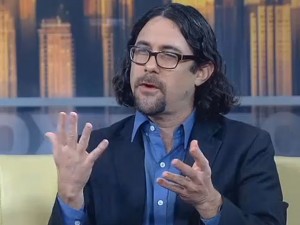 I was working at a deaf services agency and noticed that many difficulties my clients had were rooted in language and cultural barriers. I took a CDI training course thinking that it would benefit my work with diverse clients, but I came to realize that working as a CDI would mean that any influence I had in minimizing barriers would come during the actual situations rather than after the fact.
I was working at a deaf services agency and noticed that many difficulties my clients had were rooted in language and cultural barriers. I took a CDI training course thinking that it would benefit my work with diverse clients, but I came to realize that working as a CDI would mean that any influence I had in minimizing barriers would come during the actual situations rather than after the fact.
Barriers:
There are not that many training opportunities out there specifically for CDIs. I also wish there was a robust local CDI community when I started out, it is better to observe and learn alongside other CDIs. Also, coming into the interpreting world with greater knowledge of ASL and the deaf community but limited knowledge of interpreting theories and best practices, it took time to learn how to work best with hearing team interpreters in various situations with different demands.
Deaf Advantages:
I have lived the Deaf life 24/7 since birth, interacting with an enormous variety of deaf people. These experiences have helped me understand how to vary my ASL production to suit different people and also to consider the range of knowledge and viewpoints of deaf community members in order to present information in a way that is clear . When communicating a message, it is very difficult to identify what gaps in understanding may occur.
Advice:
Talk with other CDIs to get an understanding of the profession. Freelance work isn’t for everyone, there are few traditional full time positions for CDIs. Observe CDIs at work, attend CDI training and any advanced training related to the CDI work you might find in your area, e.g. mental health.
Michael Schwartz
Attorney, Associate Professor of Law
http://law.syr.edu/profile/michael-schwartz1
Inspirations:
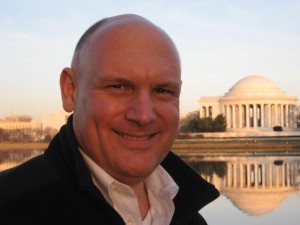 I grew up during the anti-war and civil rights movements of the sixties and cut my political teeth on resistance to racism and imperialism. I went to many demonstrations protesting Jim Crow at home and the war in Vietnam, but it wasn’t until the 1970’s that I realized discrimination based on disability was also a pernicious and pervasive problem. As I was becoming aware of civil rights for people with disabilities, I had an close-up encounter with discrimination against deaf children at a state school for the deaf in the South, and based on my reports, the American Civil Liberties Union was able to obtain legal relief for these children. This experience combined with my progressive background propelled me toward a career in the law.
I grew up during the anti-war and civil rights movements of the sixties and cut my political teeth on resistance to racism and imperialism. I went to many demonstrations protesting Jim Crow at home and the war in Vietnam, but it wasn’t until the 1970’s that I realized discrimination based on disability was also a pernicious and pervasive problem. As I was becoming aware of civil rights for people with disabilities, I had an close-up encounter with discrimination against deaf children at a state school for the deaf in the South, and based on my reports, the American Civil Liberties Union was able to obtain legal relief for these children. This experience combined with my progressive background propelled me toward a career in the law.
Barriers:
A huge barrier has always been attitudinal. People assume that if you are deaf, you are also dumb. This ignorance leads to mistakes that violate the ADA. Hearing people either pity you or hold you up as a “supercrip” because you can drive despite being deaf. Another huge barrier is the lack of effective communication access: lack of interpreters and captioning are prevalent all over America.
Deaf Advantages:
To be honest, I don’t know. In terms of public service employment (e.g., Federal and State government employment), these entities have been very accommodating of deaf workers, but the private sector much less so.
Advice:
I have two responses. The first is to highlight the need for two assets: native fluency in English and a passion for the law. Both are essential to success in law school and beyond.
My second response is to ask the deaf person why he/she wants to become a lawyer. Law in capitalist America is designed and structured to protect the interests of power. Put differently, law protects the interests of white, able-bodied, heterosexual males, and while there are laws against discrimination, the courts operate to ensure that the interests of those in power aren’t unduly threatened or usurped. Take the Americans with Disabilities Act, for example. It is extremely frustrating to see how the courts have interpreted the ADA to frustrate the legitimate aspirations of people with disabilities. Examples are too numerous to list here, but the overwhelming sense I have is that while the ADA has been helpful here and there, as a whole, anti-discrimination law has not been able to reorder power relations because the courts – made up mainly of wealthy white males far removed from the daily struggles of ordinary people – have made sure that ingrained patterns of marginalization and oppression remain securely in place. For instance, the unemployment rate of people with disabilities in 1990 (when the ADA was enacted) was around 70%, a figure that remains unchanged to this day.
These interviews represent only a small number of the countless individuals who are out there proving on a daily basis that when you have passion and motivation, anything is possible! Talented people who are d/Deaf can be found in every field at every level, working harder than most to rise up through the ranks. Deafness is not a barrier to success, but prejudice ignorance can be. I am excited and honored to share perspectives from Deaf professionals pursuing careers they love, and I look forward to future installments in this series!
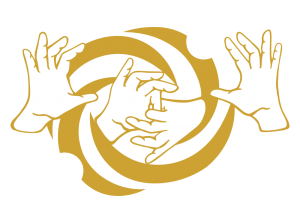

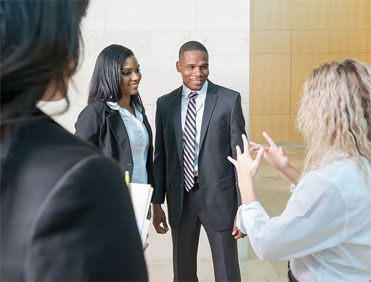

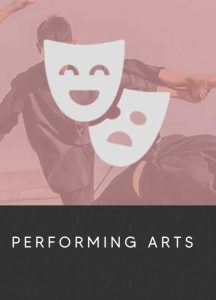
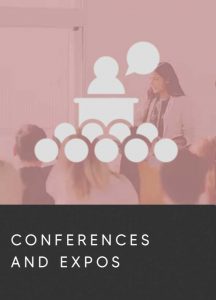
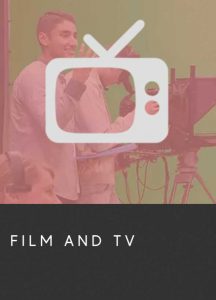
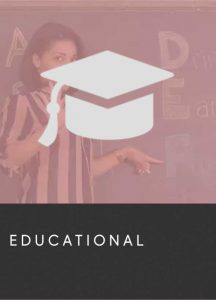
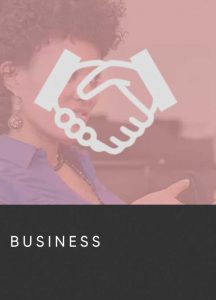
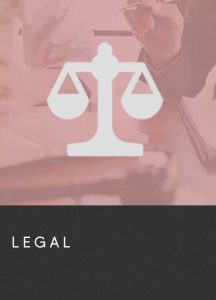
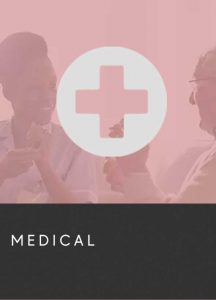
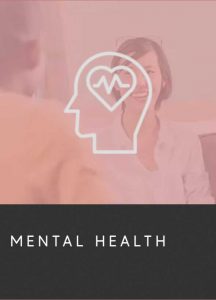
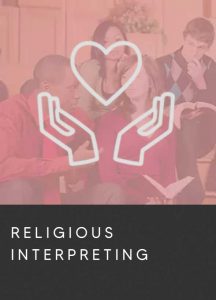
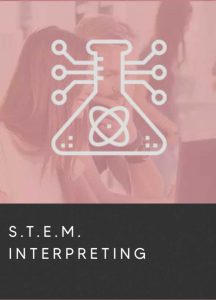
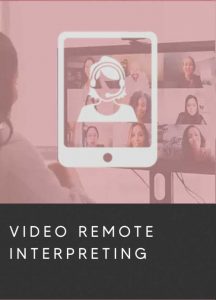
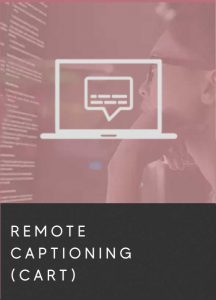

 Since the beginning of time, in all civilizations, it has been necessary for people who are deaf to take an active role as self-advocates. For this historically marginalized group, fighting for their rights (and the rights of others) has always been a matter of survival. There are times when the only person who can really understand a deaf individual is another person who is deaf. This is true when it comes to language skills, since not everyone uses formal American Sign Language, and it is also true when it comes to recognizing and navigating instances of institutional oppression.
Since the beginning of time, in all civilizations, it has been necessary for people who are deaf to take an active role as self-advocates. For this historically marginalized group, fighting for their rights (and the rights of others) has always been a matter of survival. There are times when the only person who can really understand a deaf individual is another person who is deaf. This is true when it comes to language skills, since not everyone uses formal American Sign Language, and it is also true when it comes to recognizing and navigating instances of institutional oppression. Those who have been in traumatic situations, for example victims of assault or people who are deaf in the Emergency Room, might be best able to communicate through a deaf interpreter. In situations when a deaf individual is subject to police interrogation or asked to provide a statement, a deaf interpreter can offer the critical nuanced understanding that can mean the difference between conviction and acquittal. There are some people who are deaf whose needs will best be met by a deaf interpreter in any medical setting or legal situation, since the outcomes here can deeply impact a person’s life.
Those who have been in traumatic situations, for example victims of assault or people who are deaf in the Emergency Room, might be best able to communicate through a deaf interpreter. In situations when a deaf individual is subject to police interrogation or asked to provide a statement, a deaf interpreter can offer the critical nuanced understanding that can mean the difference between conviction and acquittal. There are some people who are deaf whose needs will best be met by a deaf interpreter in any medical setting or legal situation, since the outcomes here can deeply impact a person’s life. To connect with deaf consumers, especially those who may have a language deficit for one reason or another, deaf interpreters will first interact with the person to familiarize with their language level and communication preferences. Through these preliminary interactions, the interpreter can assess if the deaf consumer has any unique cultural mannerisms, which can vary depending on factors like age, region, and educational background.
To connect with deaf consumers, especially those who may have a language deficit for one reason or another, deaf interpreters will first interact with the person to familiarize with their language level and communication preferences. Through these preliminary interactions, the interpreter can assess if the deaf consumer has any unique cultural mannerisms, which can vary depending on factors like age, region, and educational background. The most important thing for hearing interpreters to consider is that not all CDIs are the same, therefore they will not all employ the same strategies or have the same communication preferences. To work most effectively as a team, hearing and deaf interpreters should meet before any assignment (if possible) to establish a rapport and discuss the best ways to meet everyone’s needs.
The most important thing for hearing interpreters to consider is that not all CDIs are the same, therefore they will not all employ the same strategies or have the same communication preferences. To work most effectively as a team, hearing and deaf interpreters should meet before any assignment (if possible) to establish a rapport and discuss the best ways to meet everyone’s needs. There are many different situations that call for deaf interpreters, and all deaf interpreters have different strengths. Deaf interpreters can effectively fill the knowledge and information gaps in nuanced discussions while improving the accuracy of the message as it is understood by the deaf individual. They can help to identify consumer strengths and weaknesses, background, and experience and then, from that place, help to filter through information.
There are many different situations that call for deaf interpreters, and all deaf interpreters have different strengths. Deaf interpreters can effectively fill the knowledge and information gaps in nuanced discussions while improving the accuracy of the message as it is understood by the deaf individual. They can help to identify consumer strengths and weaknesses, background, and experience and then, from that place, help to filter through information.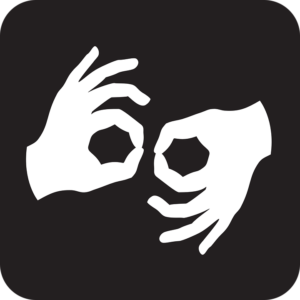 situation and specifically in the schools. 2) It is better to spend the money on a hearing-deaf interpreting team to get best results in a shorter amount of time. Often I get called in appointments later as a last resort option and quickly the situation is rectified. The latter method incur more costs from repeated meetings.” ~ R. Thibodeau
situation and specifically in the schools. 2) It is better to spend the money on a hearing-deaf interpreting team to get best results in a shorter amount of time. Often I get called in appointments later as a last resort option and quickly the situation is rectified. The latter method incur more costs from repeated meetings.” ~ R. Thibodeau Too often, young people who are deaf are discouraged from following their dreams. They are told “you can’t…” or “you won’t be able to…” and they are pushed to into careers that they are not passionate about. In reality, however, there are very few jobs Deaf people “can’t” do, especially once small adjustments are made to accommodate their specific skills and abilities. At the end of the day, our society limits people more than the actual experience of deafness ever could.
Too often, young people who are deaf are discouraged from following their dreams. They are told “you can’t…” or “you won’t be able to…” and they are pushed to into careers that they are not passionate about. In reality, however, there are very few jobs Deaf people “can’t” do, especially once small adjustments are made to accommodate their specific skills and abilities. At the end of the day, our society limits people more than the actual experience of deafness ever could. I grew up watching MTV with my brothers, listening to songs my parents and brothers played – which they included me by lip-synching songs so I could read their lips, witnessing the enjoyment of live music from watching my Dad and Uncle perform in their country-rock band The Forbes Brothers.
I grew up watching MTV with my brothers, listening to songs my parents and brothers played – which they included me by lip-synching songs so I could read their lips, witnessing the enjoyment of live music from watching my Dad and Uncle perform in their country-rock band The Forbes Brothers. Born Kristen Marie Weiner, I am now known as Rajarajeshwari, my spiritually inspiring name. The vision of Deafhood Yoga® was channeled in 2008, after experiencing the depth of Dr. Paddy Ladd’s book “Understanding Deaf Culture, in Search of Deafhood”. In that class, the intense dialogue with other members of the Deaf community led to a powerful moment of understanding what the concept of colonization truly meant. I had the opportunity to learn and study Deafhood in the Deaf, collective community for two semesters.
Born Kristen Marie Weiner, I am now known as Rajarajeshwari, my spiritually inspiring name. The vision of Deafhood Yoga® was channeled in 2008, after experiencing the depth of Dr. Paddy Ladd’s book “Understanding Deaf Culture, in Search of Deafhood”. In that class, the intense dialogue with other members of the Deaf community led to a powerful moment of understanding what the concept of colonization truly meant. I had the opportunity to learn and study Deafhood in the Deaf, collective community for two semesters. I was working at a deaf services agency and noticed that many difficulties my clients had were rooted in language and cultural barriers. I took a CDI training course thinking that it would benefit my work with diverse clients, but I came to realize that working as a CDI would mean that any influence I had in minimizing barriers would come during the actual situations rather than after the fact.
I was working at a deaf services agency and noticed that many difficulties my clients had were rooted in language and cultural barriers. I took a CDI training course thinking that it would benefit my work with diverse clients, but I came to realize that working as a CDI would mean that any influence I had in minimizing barriers would come during the actual situations rather than after the fact. I grew up during the anti-war and civil rights movements of the sixties and cut my political teeth on resistance to racism and imperialism. I went to many demonstrations protesting Jim Crow at home and the war in Vietnam, but it wasn’t until the 1970’s that I realized discrimination based on disability was also a pernicious and pervasive problem. As I was becoming aware of civil rights for people with disabilities, I had an close-up encounter with discrimination against deaf children at a state school for the deaf in the South, and based on my reports, the American Civil Liberties Union was able to obtain legal relief for these children. This experience combined with my progressive background propelled me toward a career in the law.
I grew up during the anti-war and civil rights movements of the sixties and cut my political teeth on resistance to racism and imperialism. I went to many demonstrations protesting Jim Crow at home and the war in Vietnam, but it wasn’t until the 1970’s that I realized discrimination based on disability was also a pernicious and pervasive problem. As I was becoming aware of civil rights for people with disabilities, I had an close-up encounter with discrimination against deaf children at a state school for the deaf in the South, and based on my reports, the American Civil Liberties Union was able to obtain legal relief for these children. This experience combined with my progressive background propelled me toward a career in the law.





